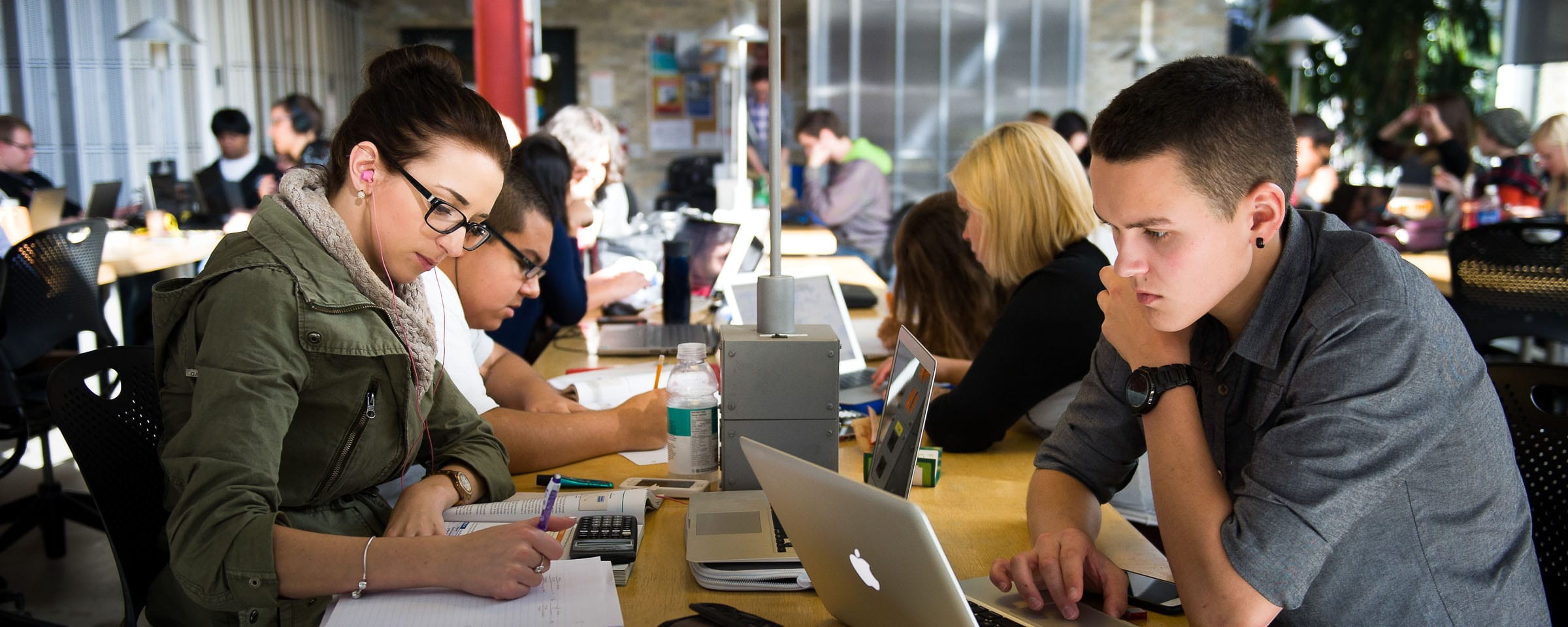College Students Gearing Up for Shell Eco-Marathon
Keeping their eyes on the prize, an ambitious team of Red River College students are building an electric car from scratch to compete in the Shell Eco-Marathon competition in the Electric Prototype Division at the 2018 Americas competition taking place on April, 2018, in Detroit, USA.
“We’re all invested in this,” said Mechanical Engineering student Riley McLeod. “It’s something that we’ve made. It’s our creation.”
Remarkable Talent & Patience
The most striking aspect of this team is their talent and patience: the crew are building everything from scratch including the motor controller and 3D-printed steering wheel, right down to small custom-crafted components of the vehicle.
“There’s a lot of tiny details and when you’re trying to reduce weight it can really make you go crazy,” said their advisor, Leon Fainstein, an instructor in mechanical technology.
The team’s level of knowledge and ingenuity is inspiring and they have solid guidance from Fainstein and a growing network of support.

Instructor Leon Fainstein does a walk-around of the vehicle frame with student and team-member Riley McLeod.
Maximum Distance, Minimum Energy
The team strategy consists of designing the vehicle to be as light as possible, and their driving strategy aims to maximize distance covered with minimal energy output.
This will require the driver to accelerate to a pre-tested maximum speed before taking their foot off the accelerator to coast for optimal energy efficiency and speed. All of this is being tested, refined and retested as they progress.
“This competition is all about efficiency – using the least amount of energy,” said team-member and Mechanical Engineering student, Bin Yang.
Bin and a teammate were recently hunched over a small and confusing board of electronics known as the motor controller, which serves to govern the motor itself.
They were hitting their head against the wall trying to build the device without blowing it up. They succeeded before long and are now testing their work.
Learning Through Doing
There is no substitute for applied, hands-on learning, and this team is living proof.
“I’m really enjoying it,” Brad Thidrickson said of their work. “We don’t learn this much about composites in our class, so we’ve definitely learned a lot. It’s a really good learning experience.”
Other teammates express similar sentiments.
“I joined because I am probably the least mechanical-oriented in the group, so I wanted to learn more about that stuff,” said Mechanical Engineering student Andres Osorio. “I learned how to model the car for this project, 3D curves and how to handle composites.”
What’s Next? It Takes a Community to Build an Eco-Car
The team are shifting out of their design phase and into manufacturing. Building and testing all of the internal components is their next step. They have a few prototypes of their steering design to develop, and will then do strength-testing to see how it works.
Apart from this, there is the small problem of not having a driver.
A College-wide campaign is being developed to search for a student driver. The College’s Research Communications Coordinator has been engaged in the project along with the Marketing and Web Presence team.
There’s also the issue of funding. It costs a pretty penny to build an electric car from scratch, so the College’s Development Office has been engaged to help with fundraising and donations for the team. Check out their Sponsorship Package here (PDF document).
As the project progresses, the broader College community will be engaged along with a growing network of external partners.
It takes a community to build an eco-marathon car.
Stay updated about the team’s progress on their blog.
For more details email Bin Yang: scobin3@gmail.com


